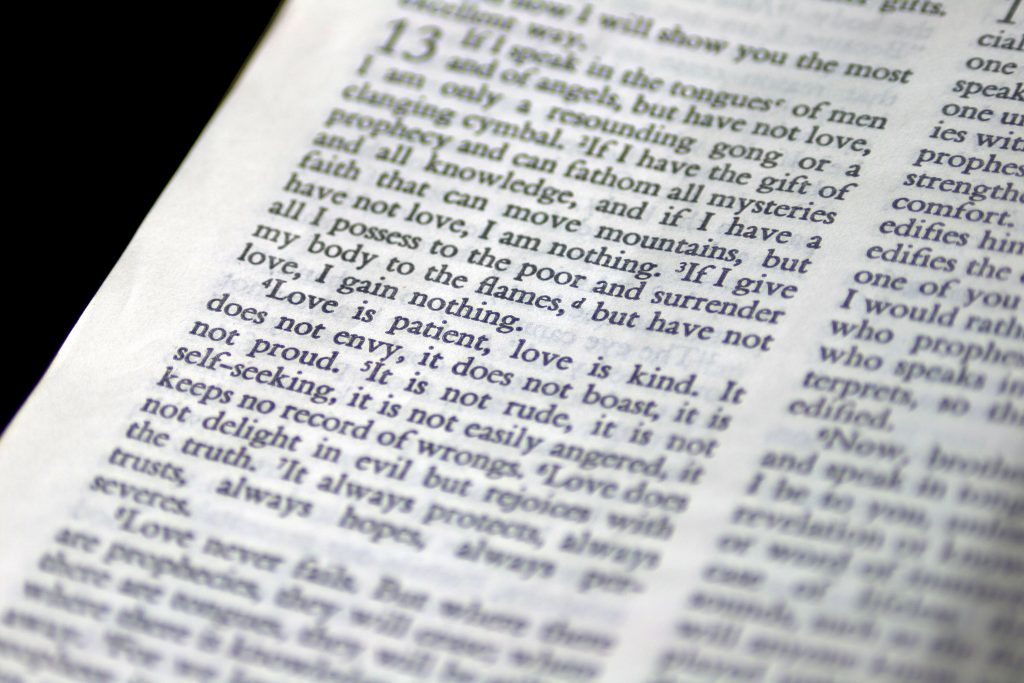‘It’s a Sin’ sang the Pet Shop Boys in 1987 but today for many people the concept of sin, the force of the word, has been lost. We don’t talk about sin in everyday contexts and quite often we don’t even think about it, glossing over where it occurs in our Christian liturgy, – in our prayers, sacraments and hymns.

Sometimes people will talk about sinning as doing something wrong, making a mistake or doing something you have to be sorry about afterwards. But this just makes sin about human behaviour, whereas sin is about our behaviour and choice in relation to what God wants for us. When we sin, we step away from God, turn our backs on God, become deaf to the Holy Spirit, betray what Jesus has taught us and done for us. Sin then, is a much bigger deal than just doing something wrong. It’s something that drags us away from the discoveries and explorations we need to make on our spiritual journeys, as we try to follow Jesus and become more Christ-like.
On the other hand, Christians can sometimes be obsessed with what they see as the sins of others. This is nothing new: Jesus saw this in his own time and made a point about how much easier it often is to make judgements without asking how far we have stepped away from God’s will ourselves.
Jesus asks us to take sin seriously, and to recognise how sin separates us from God. He asks us to recognise the importance of repentance and forgiveness. On Ash Wednesday, one of the things which can be said is a reminder of this: ‘Turn away from sin, and be faithful to the Gospel’. But one of the questions is about how we remain turned away from sin. How do we stay faithful?
Jesus says: ‘Love one another as I have loved you’. Love is another misused word in the context of our spirituality. People often think of gestures of love as being like the love locks in the picture – expressions of romantic commitment, or some form of good-feeling emotional investment. But Christian love can be harder, tougher, more painful and more difficult. Love can be difficult to hear. Love, like Jesus’s words to the rich young man, can mean saying no.
In Holiness and Desire, Rev’d Canon Jessica Martin says this:
Christian community is not primarily a community of kin. The bonds of love, for Christians, go beyond blood-ties; the demands of recognition don’t acknowledge the boundaries of class and race, identity and tribe. So if the family, or the community, you have inherited is full of people who are ‘related’ by ties brought about by the historical criss-cross of chaotically satisfied desires among your own generation or another’s, perhaps you begin by acknowledging that the Spirit really is asking you to take some responsibility for a person you never expected to have to love. You start from where you are. And then you listen, hard, for what may be a very unexpected command.’ P169.

1 Corinthians 13 is a beautiful passage often read at weddings. But what if we thought about it in terms of what Jessica Martin describes:
If I speak in the tongues of mortals and of angels, but do not have love, I am a noisy gong or a clanging cymbal. And if I have prophetic powers, and understand all mysteries and all knowledge, and if I have all faith, so as to remove mountains, but do not have love, I am nothing. If I give away all my possessions, and if I hand over my body so that I may boast, but do not have love, I gain nothing.
Love is patient; love is kind; love is not envious or boastful or arrogant or rude. It does not insist on its own way; it is not irritable or resentful; it does not rejoice in wrongdoing, but rejoices in the truth. It bears all things, believes all things, hopes all things, endures all things.
Love never ends. (1 Cor 13.1-8)
This kind of love requires us to go towards the person we would prefer to cross the street to avoid. This kind of love makes us patient with those who make us despairingly frustrated. This kind of love makes us responsible for those we would love to condemn. It’s incredibly challenging. It makes the church’s community boundaries porous. It drags us away, kicking and screaming from sin. It binds us irrecoverably to people unlike us and transforms all our presuppositions and assumptions. It can be hard to give in to this sort of love, but it is God’s love made real in us. Relational church makes visible a God of Love. We can become the face of God’s love to others.
Some ideas to ponder:
- How would you explain what we mean by ‘sin’ to someone who is not Christian?
- What do you think are the hallmarks of Christian love? How does that differ from what people think ‘love’ means today?
- How might the description of love in 1 Corinthians 13 become the bedrock of a community of relationship?
- What ONE thing could you do if the Spirit asks you to ‘take some responsibility for a person you never expected to have to love?’

